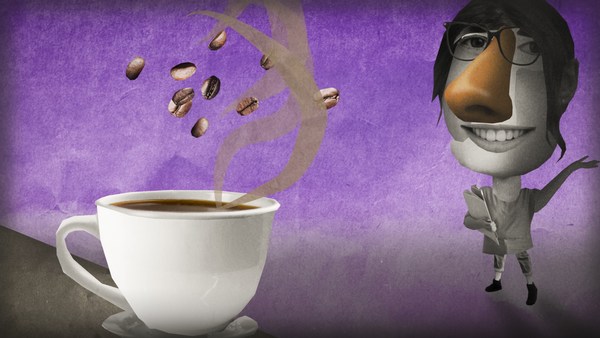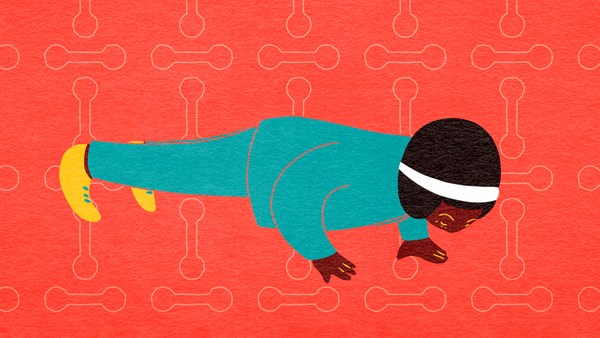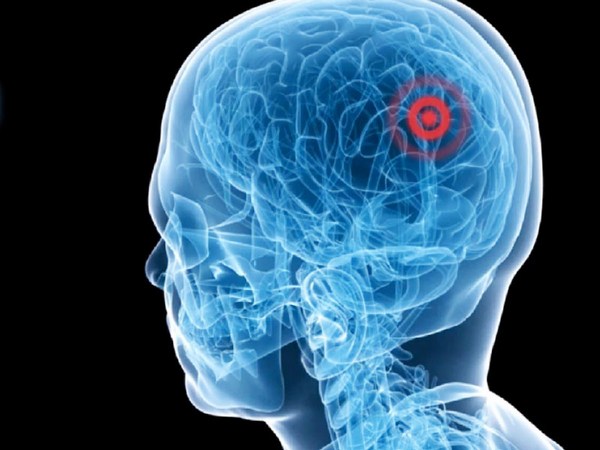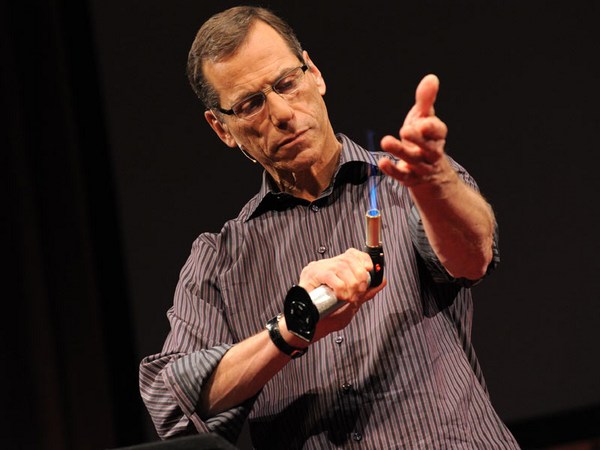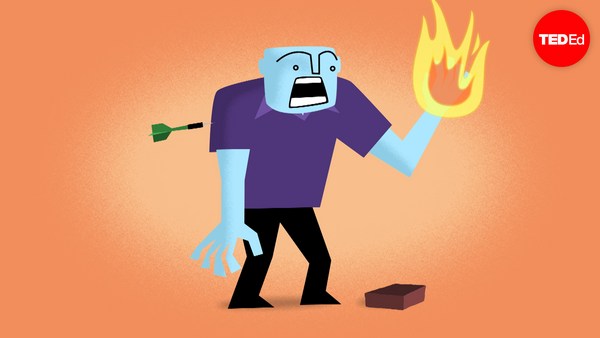Back pain is one of the biggest reasons we seek medical care, and low back pain is listed as a leading cause of disability worldwide. But there's a lot of misinformation out there, and along with it, a lot of bad treatments.
(Music)
[Body Stuff with Dr. Jen Gunter]
So today, I want to bring up five things you should know about back pain.
One: Back pain isn't just limited to the spine. Our back is made of bones called vertebrae that run from your neck to your tailbone. These vertebrae form the spinal column, which houses the spinal cord. Each vertebrae is also connected to the others by ligaments. Between each vertebrae are discs which provide cushion and help absorb and distribute pressure. Within this structure of connections are also joints, muscles, tendons and nerves. But our back isn't held up by just the spine. In fact, a lot of that work is done by our core, which includes our abdominal muscles, low back muscles, hips and glutes and pelvic floor. The muscles in our core take pressure off the rest of the spine. Every day, we put all kinds of pressure on our backs when we walk, stand, carry our groceries, lift boxes, and even when we sit. So it’s not only spinal pressure but torn muscles or slipped discs that could be contributing to back pain. But pain itself is even more complex. Often, it's how pain signals are processed in the nerves, or in the brain that perpetuates the pain. Other factors, like stress and anxiety, can amplify pain. This complexity is why treating back pain can be so frustrating, and why it's enticing to seek out all sorts of medically suspect care.
Which leads me to two: Chiropractic treatment is not backed by science. Going to chiropractors for spinal manipulation is very popular, especially in the United States. But a study that looked at 45 systematic reviews found no evidence supporting chiropractic treatment as effective for any medical condition. I'm not denying that people who visit chiropractors sometimes feel better after a session, but studies suggest that the comfort and relief from being touched is most likely a placebo effect. This is also a reminder that chiropractic treatment can sometimes be dangerous. There are people who have suffered vascular strokes after neck adjustments.
Three: Imaging techniques like MRI or X-ray don't always help with diagnosing back pain. For instance, you can be in a lot of pain and get an MRI showing a pristine spine with nothing out of the ordinary. Or you could have no pain whatsoever, and an MRI could turn up abnormalities, like a bulging disc. What’s more, sometimes, when you do have pain, and abnormality on MRI may have nothing to do with it. Additionally, an MRI doesn't always capture what's happening with your muscles or tell us how pain is being processed in the brain. There are instances when imaging helps to rule out a serious problem, especially after trauma or an accident, or if there are red flags, meaning warning signs for cancer or troubling neurological symptoms. But for the majority of people with back pain, imaging has actually been associated with worse patient outcomes and unnecessary surgeries.
Speaking of surgeries, four: Back surgeries can sometimes do more harm than good. Researchers analyzed studies on two types of spine surgery, lumbar spine fusion and lumbar spine decompression. They found that neither of these surgeries was more effective than nonsurgical treatment, which I'll get into in a bit.
Finally, five: Physical therapy is a really good option for back pain. A well-designed physical therapy program can often be very effective at treating acute and chronic back pain. But it does take work. Good physical therapy involves not just assessments, but also a structured home exercise program, which you need to do regularly. There are also multidisciplinary clinics that can offer multimodal therapy, like medications, physical therapy, and, sometimes, injections.
What I'm saying is there isn't always an easy fix for back pain. The solutions take time and sometimes need a multipronged approach. For now, you can show your back some love by staying active and doing exercises that strengthen your muscles, including your core.
